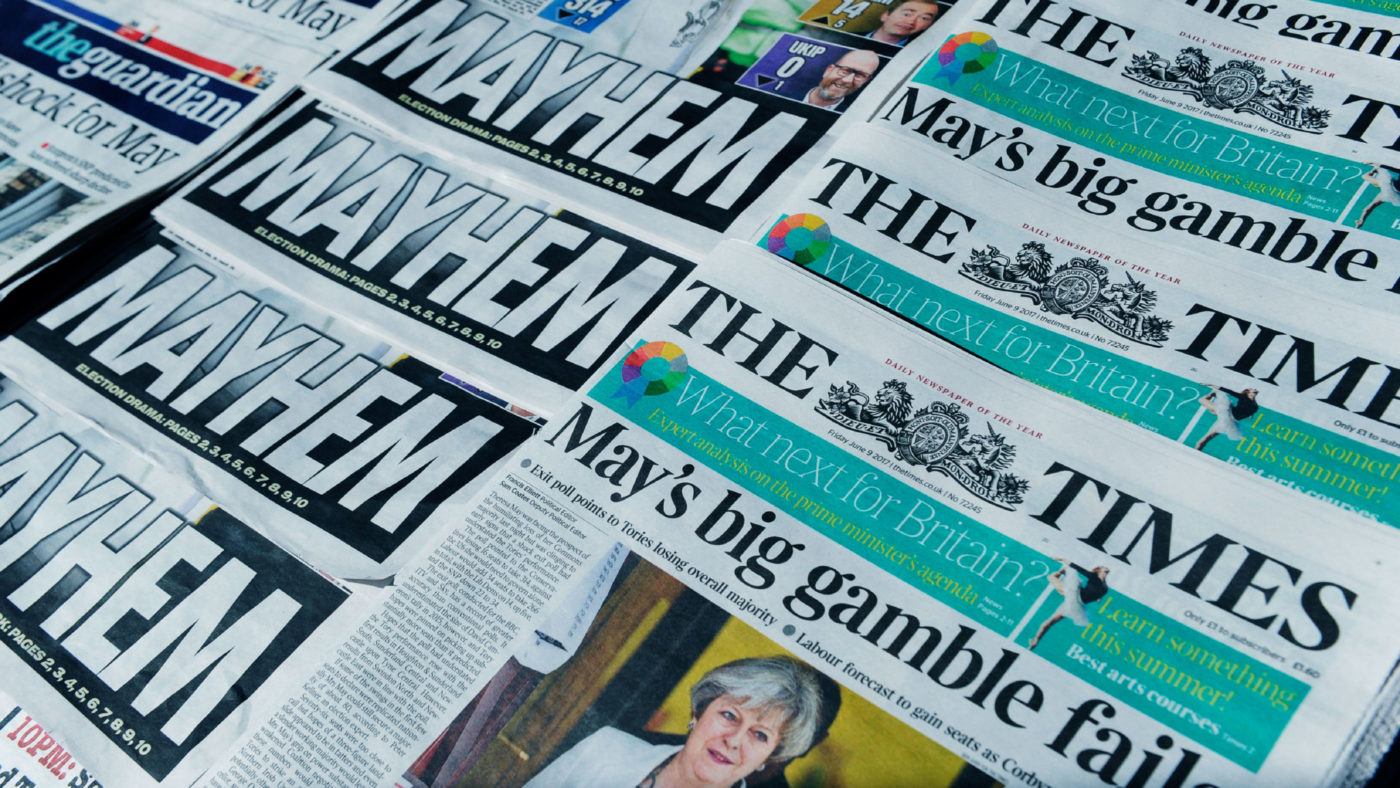Hindsight is a wonderful thing. Over the coming days, there will be many deconstruction jobs of what went wrong for the Conservative party. No doubt data-filled analysis is being compiled as we speak. So, forgive me if this seems just another opinion. But having been critical of the Conservative platform and now worried about Brexit and economic-related consequences, here are some lessons I think the Conservative party should heed for the future:
1. Brexit is a huge issue, but not the only issue. You need to work to keep it on the agenda. To capitalise on being the party of Brexit you have to be positive about it and show what Brexit Britain could achieve. This requires examples of policy areas being used upon their repatriation to improve people’s lives.
2. Given your high economic trust ratings, play to your strength and focus on the economy. Spend less time talking about the IRA and Corbyn’s views on security and more time talking about how his ideas have ruined other countries with high levels of unemployment.
3. Don’t base your campaign on the character of your leader when the leader is not a character.
4. Do not claim you are “strong and stable” then refuse to debate and U-turn at the first sign of dissent. Strong leaders should be able to explain their positions and easily dispense with extreme, weak left-wingers.
5. Do not take potshots at some of your usual key intellectual supporters by using the manifesto to start a philosophical debate about what true conservatism is. Nobody cares about Nick Timothy and Ben Gummer’s views on libertarians and free marketeers. Except, of course, libertarians and free marketeers, who will then not go out to bat for you on unpopular issues.
6. On policy, don’t try to out-Labour Labour. Not only do you lose the moral high ground, but no matter how many times you say “social justice”, “a country that works for all”, and promise to take communion at the church of the NHS and so on, you will not win enough votes from people who vote primarily on those issues to beat those seen as the true believers.
7. Produce some idea or policy that will inspire and excite people, and don’t look self-entitled, as if you expect people will vote for you simply because the other guy is extreme. I’m involved in policy and the only thing I can remember from the manifesto is the “dementia tax”. And, no, fox hunting doesn’t get the vast majority of the country excited. The opposite in fact.
8. Lock in and build out: don’t think attacking your core elderly vote through intergenerational policy change will subsequently bring in young votes – it won’t.
9. Lock in and build out part II: don’t talk about targeting seats with more than a 10 per cent swing required and then lose sight of those narrower marginals.
10. Don’t presume Tory-sceptic voters won’t be petrified of an absolute Tory landslide and so rally to Labour from other parties. Again, give them a reason to vote for you.
These can perhaps be summarised as three broader lessons, really: play to your strengths, build from the base and give new voters a reason to choose you.
Sadly, we are now in a position as a consequence of the results where the path to Brexit looks fraught with danger and the longer term consequences bleak.
Not only will there be a very slender majority for getting legislation through to entrench the form of Brexit which Theresa May desires (with her likely to be pressured from both hard and soft Brexiteers), but the mere perilousness of her position, and the government’s, grants the EU the whip hand in any and all negotiations, with Corbyn waiting in the wings.
Of course, his own position on this is all over the place, having both pledged to remain within the single market and to control migration, ambitions the EU has described as incompatible.
The probabilities of both a more chaotic Brexit where no deal whatsoever is reached and one where the UK remains within the single market have therefore gone up. The probability of May realising her deep and meaningful relationship outside of the single market has fallen. The Conservatives don’t even really have time to replace May and develop a new strategy given the two year Article 50 clock is already ticking.
The longer-term consequences of this are very bad indeed. A May government with such a slender majority and so consumed by Brexit in the coming years is unlikely to be able to do much else. A chaotic exit would be seen as another failure on her watch, whilst a single market deal would be seen by many as a betrayal of the Brexit result itself.
All Corbyn has to do is sit, triangulate and wait. He will now be able to build up a sustained narrative in other areas against what many will perceive to be a less legitimate government, and all it requires is for an economic downturn or for May not to deliver the Brexit she hoped for to grant a hard-left Labour party a shot at governing Britain.
What an utter mess.


